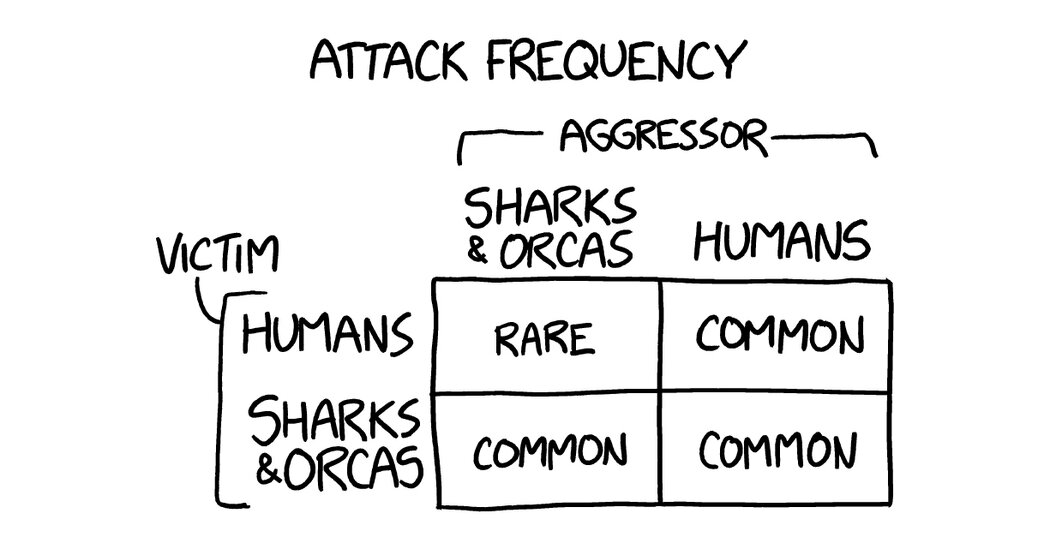
In the wild, is a human more likely to survive an encounter with an orca or a great white shark?
— Kameryn F., Yardley, Pa.
By the numbers, white sharks are a lot more dangerous to humans than orcas are. Despite the name “killer whale,” there’s only one well-documented instance of a wild orca attacking someone — Hans Kretschmer, who was bitten on the leg while surfing in California in 1972. Attacks by white sharks, although still rare, happen quite a bit more often; there are several hundred on record.
So why are killer whale attacks so rare? Emma Luck, a marine-mammal researcher at the University of Alaska, told me that a big part of it is just that orcas don’t encounter humans as often. “Killer whales are found in all oceans, but they tend to be found in higher densities around cold, high-latitude regions,” she wrote in a message. “These are areas where the water is not particularly inviting for the average beachgoer!”
She said the 1972 orca attack was probably a case of mistaken identity, as is the case with many shark attacks. “In an open water context, where all parties can view each other clearly, I would wager that both the shark and the killer whale are going to leave you alone,” she said.
In fact, you don’t have to spend long browsing police blotters to confirm that not only are killer whale attacks rarer than shark attacks, they are also rarer than documented cases of swimmers being attacked and bitten by other humans. Granted, that’s because there are a lot more humans than orcas around, but that doesn’t change the conclusion: In the ocean, you’re more likely to be attacked and bitten by a person than by a killer whale.
Because sharks and orcas both spend most of their time hidden underwater, we often think of them in terms of their brief interactions with us — will they attack us or not? If the only two options are “Don’t attack the human” and “Attack the human,” it’s hard not to focus on the second one. After all, it’s the second most likely option!
But sharks and orcas aren’t just hanging out down there deciding whether to attack us. Like the humans you pass on the street, they are mostly busy doing their own thing.
And in the case of orcas, one of the things they’re busy doing is worrying about humpback whales.
For reasons that are unclear to scientists, humpback whales almost seem to have a vendetta against killer whales, as a 2016 paper in the journal Marine Mammal Science noted. All over the world, orcas trying to chase down food are routinely interrupted by out-of-the-blue humpback whale attacks. Humpbacks will band together and travel great distances to intervene in killer whale hunts, regardless of what the prey species is.
The paper even documents cases of humpback whales seemingly lifting seals up out of the water and holding them out of reach of the orcas. The humpbacks stayed and protected the prey for hours, until the orcas were forced to go away hungry.
Why do humpbacks do this? Is this altruism? Game theory? Cross-mammal solidarity? A side-effect of their instinct to protect calves? Or do they just really hate orcas, for reasons known only to them?
“It’s hard to understand why it happens,” Ms. Luck said. “Especially because it’s not limited to just one population of humpbacks. It happens all over the world.”
So if you do encounter a killer whale in the ocean, don’t worry, it’s unlikely to attack you. And if you’re still worried … perhaps consider befriending a humpback.
